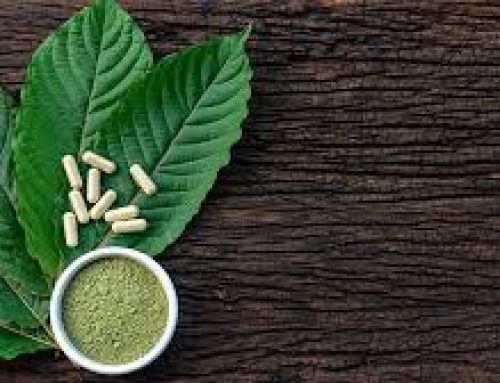CBD is the latest craze but unlike many previous products that have held that moniker, it has some real staying power and more importantly scientific evidence backing up some of its claimed benefits. You have likely heard people, publications and more talking about the benefits of it but is CBD oil actually legal?
If you don’t already know CBD stands for Cannabidiol which is a compound found in the cannabis plant. You are probably now sensing where the question over its legality comes into play. Marijuana, a variety of the cannabis plant species, is illegal to grow, possess and distribute on a federal level in the U.S.
But just because CBD is found in the cannabis plant that doesn’t mean it’s illegal does it? After all, CBD which is just one of the many cannabinoids found in the cannabis plant, isn’t exactly the same thing as cannabis itself. Let’s get down to the legal considerations and examine whether CBD oil is legal or not.
The short answer to the question posed by this article is yes CBD oil is legal in many countries. This includes the UK, many American states, France, Germany and more. So, it would seem a pretty clear-cut case. Yes, CBD oil is legal, and you can even find it in many popular shops in their respective countries.
However, you have likely guessed that things aren’t quite as simple as you might first think. Because every country does have slightly different laws and regulations and there are very strict rules in place when it comes to whether a CBD oil product is legal or not.
How is The CBD Oil Made?
The main factor as to whether CBD oil is legal or not will be based on how it’s made. CBD can be found in the often-illegal variety of the cannabis plant species called ‘marijuana’, but the legal form of CBD oil is rarely derived from marijuana.
The legal form of CBD is derived from the hemp plant. While hemp and marijuana both belong to the cannabis plant species, there’s one major difference between them: their THC-levels. To make things more difficult the two plants are often confused and sometimes named incorrectly leading to many commonly believed misconceptions about the two.
So, before we go any further let’s just take a look at what hemp and marijuana plants actually are. The hemp plant is a strain of the cannabis plant which is grown specifically for industrial uses. It is an incredibly fast-growing plant and has many uses and nowadays one of those main uses is to extract CBD.
The hemp plant might look similar to the marijuana plant, but the main difference are its THC-levels. THC or to give you the full name Tetrahydrocannabinol is another one of the many cannabinoids found in the cannabis plant species. But while Cannabidiol and THC are both cannabinoids they are very different.
Cannabidiol is what gives CBD oil its perceived medical benefits while THC is a psychoactive compound. This is essentially what gives people a “high” sensation when they smoke/ take cannabis. The hemp plant has much lower levels of THC most commonly only around 0.3% which means CBD oil can be safely derived from it without you having to worry about getting high.
You see CBD oil products are only legal if they are derived from the hemp plant and have low enough levels of THC. The exact law will vary from country to country for example in the US any CBD product needs to be derived from hemp and therefore must have a THC content of no more than 0.3%.
While THC has been associated with negative side effects like anxiety, according to Winston from Herbonaut, full-spectrum CBD oils that contain THC are preferable to THC-free CBD oils from a potency-standpoint.
While the source plant and THC-levels are the main concerns over CBD oils’ legal status it isn’t the only consideration manufacturers have to think about.
The Medical Benefits?
Even if you only have a limited knowledge of CBD you have probably already heard all about the many benefits of it. Everything from colds to cancer has apparently been cured using CBD oil but there is one place you will rarely see these claims written and that is on the CBD products themselves.
In the US and many other countries, it is actually illegal to officially state that CBD oil can be used as a medical treatment. While there is evidence supporting the use of CBD for certain conditions much more research is needed before we can say for sure what it actually does.
So, manufacturers have to be careful when listing the benefits of CBD products as they won’t want people to think of it as an alternative to medications. You might have also seen reports claiming CBD oil has no side effects but this also something that requires more investigation.
It seems to generally be agreed that the side effects of CBD are minimal but that doesn’t mean there aren’t any dangers to be aware of, especially in terms of potential interactions with pharmaceutical drugs. But in the vast majority of cases, CBD oil products are safe to use and legal as long as they have low levels of THC.
Potential Risks
From a legal standpoint, there is no risk of buying CBD oil products from a reliable source. That last area is where things can get a little tricky because people can often make the mistake of thinking they are buying from a reputable source when they aren’t especially when shopping online for CBD oil products.
Thankfully with CBDs burst of popularity numerous products are now available from high-street shops so finding a trusted supplier shouldn’t be a big issue. Buying from an unknown source online comes with a number of risks and you could easily end up with a poor-quality oil that has a much higher level of THC.
So, to stay legal and safe when it comes to CBD oil always buy from a supplier you can trust and know. As more is discovered about CBD it is possible that the laws could change but for now, buying hemp-based CBD oil products is perfectly legal in most Western countries like the U.S. and U.K.
In an effort to ensure that other views and opinions have a chance to flourish, I often publish guest posts. This is one such post. Thank you.






